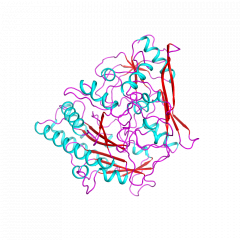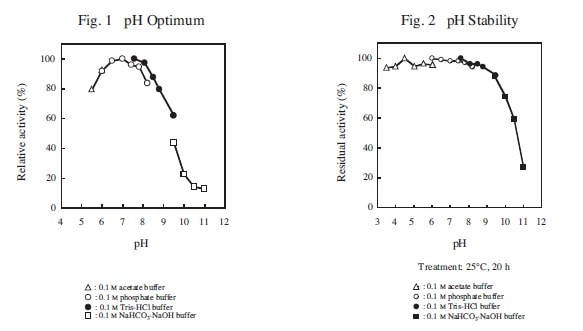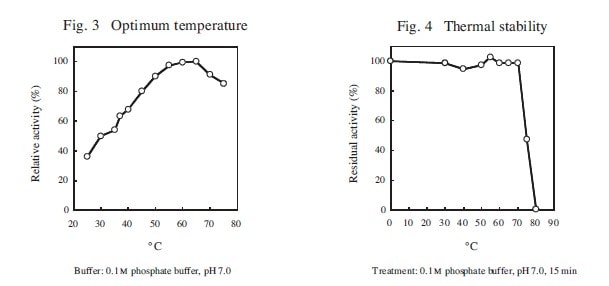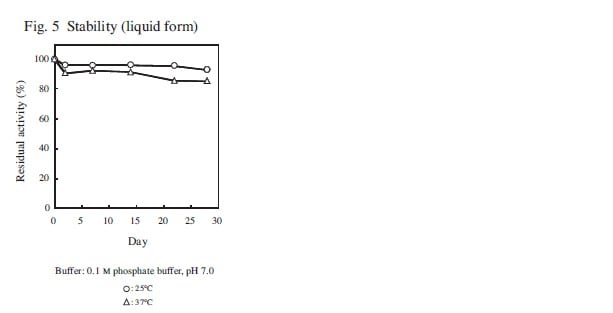
臨床検査において、各種コレステロールの測定に利用されます。
| 由来 | recombinant E. coli |
|---|---|
| 系統名 | Cholesterol : oxygen oxidoreductase |
| EC 番号 | 1.1.3 |
| 反応式 | Cholesterol + 2O2 →→→ 6β-hydroperoxycholest-4-en-3-on + H2O2 |

臨床検査において、各種コレステロールの測定に利用されます。
| 由来 | recombinant E. coli |
|---|---|
| 系統名 | Cholesterol : oxygen oxidoreductase |
| EC 番号 | 1.1.3 |
| 反応式 | Cholesterol + 2O2 →→→ 6β-hydroperoxycholest-4-en-3-on + H2O2 |
| Appearance | yellow liquid | |
|---|---|---|
| Activity | ≧200 U/mL | |
| Contaminants | Catalase ≦2.0 U/U% | |
| pH | 7.3–7.7 | |
| Stabilizer | sucrose | |
| Storage condition | below -20℃ protected from light |
| Molecular weight | ca. 59 kDa (gel filtration) |
|---|---|
| Structure | monomer of 60 kDa (SDS-PAGE) |
| Michaelis constant | 1.9×10-5 M (cholesterol) |
| pH Optimum | 6.5–8.0 |
| pH Stability | 3.5–8.5 |
| Optimum temperature | 55℃–65℃ |
| Thermal stability | below 70℃ |
| Stability (liquid form) | stable at 25℃ for at least one month |
| Inhibitors | Ag+, Hg2+ |
The enzyme is useful for the determination of cholesterol in clinical analysis.

The appearance of quinoneimine dye is measured spectrophotometrically at 500 nm.
One unit (U) is defined as the amount of enzyme which produces 1 μmol of hydrogen peroxide per min at 37℃ and pH 7.0 under the conditions described below.
Sample: dissolve the enzyme preparation to a volume activity of 0.1–0.5 U/ml with ice-cold enzyme dilution buffer (Reagent F).
| 2.55 ml | Potassium phosphate buffer | (Reagent A) |
|---|---|---|
| 0.20 ml | Cholesterol solution | (Reagent B) |
| 0.05 ml | 4-AA solution | (Reagent C) |
| 0.10 ml | Phenol solution | (Reagent D) |
| 0.10 ml | POD solution | (Reagent E) |
Activity can be calculated by using the following formula:
![]()
13.8 : Millimolar extinction coefficient of quinoneimine dye under the assay conditions (cm2/μmol)
1/2 : Factor based on the fact that 1 mol of hydrogen peroxide produces 1/2 mol of quinoneimine dye
df : Dilution factor


